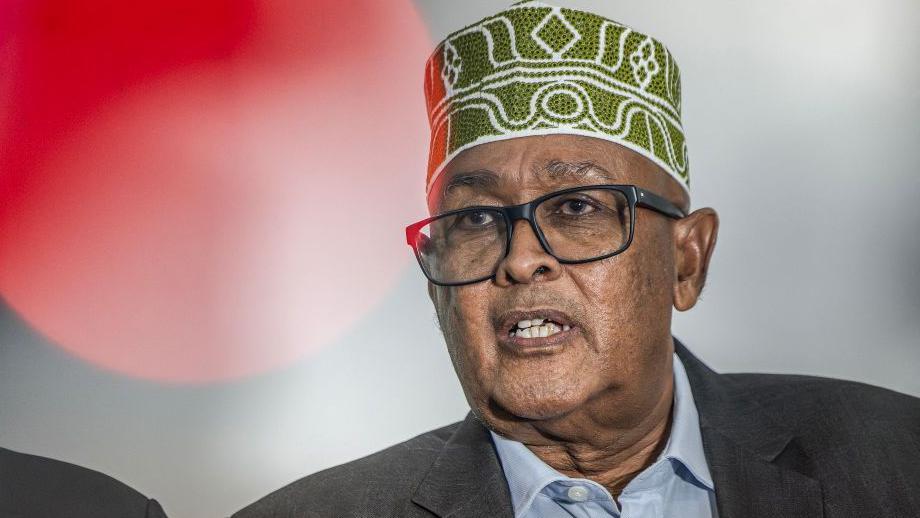Abdirahman Mohamed Abdullahi, commonly referred to as Irro, has been elected as the new president of Somaliland, winning the presidential election with an impressive 64% of votes against the incumbent, Musa Abdi Bihi, who garnered only 35%. This electoral victory marks a significant moment in Somaliland’s political history, as Irro becomes the sixth president since the region’s declaration of independence from Somalia in 1991. The election held on November 13, 2023, was widely regarded as peaceful and fair, with international observers from nine European nations and the US present to monitor the proceedings. Irro, 69, has previously served as the speaker of Somaliland’s parliament and is seen as a more unifying political figure, compared to his predecessor, who faced criticism for a paternalistic governance style amid ongoing economic challenges.
One of the prominent issues during the campaigning period was the contentious deal that would allow Ethiopia to lease a 20km section of Somaliland’s coastline for 50 years to establish a naval base. This agreement, which was announced at the beginning of the year, has incited a diplomatic feud in the Horn of Africa region, especially with Somalia, which considers Somaliland part of its sovereign territory. Somalia has reacted strongly, labeling the agreement as an act of aggression, while Irro has indicated that his administration will review this deal. Although he has not outright rejected the agreement, his diplomatic tone suggests that he may adopt a more nuanced approach. Recognition of Somaliland’s independence by Ethiopia is a critical aspect of this lease, as the region continues to strive for international legitimacy.
In reflecting on his victory and the administration he plans to lead, Irro emphasized the importance of the electoral process by declaring that “we are all winners” and expressing gratitude to outgoing President Bihi for his tenure since 2017. The criticism aimed at Bihi often highlighted his dismissive attitude towards public concerns, a stance that was detrimental, especially given the dire economic conditions facing many in Somaliland that negatively impacted the value of local currency. In contrast to Bihi, Irro’s leadership style is anticipated to be more inclusive, which could help unify the diverse interests within the region while continuing to strengthen Somaliland’s democratic practices.
Irro’s administration is also projected to maintain existing diplomatic ties with Taiwan, a decision that may further complicate relations with China, which claims sovereignty over Taiwan. The establishment of diplomatic relations with Taiwan in 2021 was a significant move that angered both Beijing and the Somali government, demonstrating Irro’s willingness to navigate complex geopolitical landscapes. As Somaliland continues to assert its independence, the dynamics of international relations in the region will be critical to monitor, particularly with ongoing sensitivities concerning territorial integrity.
Historically, Somaliland has experienced a tumultuous journey, starting as a former British protectorate before merging with Somalia. The violent conflict leading to the overthrow of President Siad Barre in 1991 resulted in countless casualties and the complete devastation of Hargeisa through aerial bombardments. Amid the chaos that ensued, Somaliland seized the opportunity to declare its independence and has since made significant strides in reconstructing its society, establishing currency, and developing local security structures. This stark contrast to Somalia’s continued struggles with instability and violence, particularly from Islamist groups, highlights Somaliland’s potential as a developmental success story, although it remains unrecognized on the international stage.
Irro’s personal backstory is also significant, as his roots in Hargeisa and educational experiences abroad, including a master’s degree in business administration from the US, have shaped his worldview and approach to leadership. Prior to entering politics, he served in Somalia’s foreign service during a challenging period, eventually fleeing to Finland amid rising conflict before returning to his homeland years later. His political career began in earnest in 2002 as he co-founded the opposition Justice and Welfare Party (UCID) and later established the Wadani Party, which has gained significant influence in Somaliland politics. Now, as the newly elected president, Irro faces the dual challenge of addressing pressing domestic issues while navigating the complexities of regional relationships and international recognition.
As he prepares to take office and officially be sworn in on December 14, 2023, the expectations for Irro’s presidency are high. His leadership style, diplomatic strategies, and ability to build consensus will be critical to solidifying Somaliland’s position in a strategically significant area of the world. The international community, including neighboring nations and global powers, will be watching closely, anticipating how Irro’s administration will approach current issues, including economic recovery, political unity, and international diplomacy. The outcome of his presidency may have long-lasting implications not just for Somaliland but for the broader dynamics of the Horn of Africa. Overall, this election signifies a pivotal moment in Somaliland’s history, representing both an opportunity for stability and a test of leadership amidst ongoing regional turbulence.

